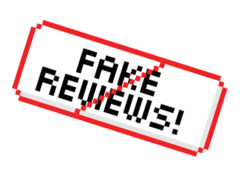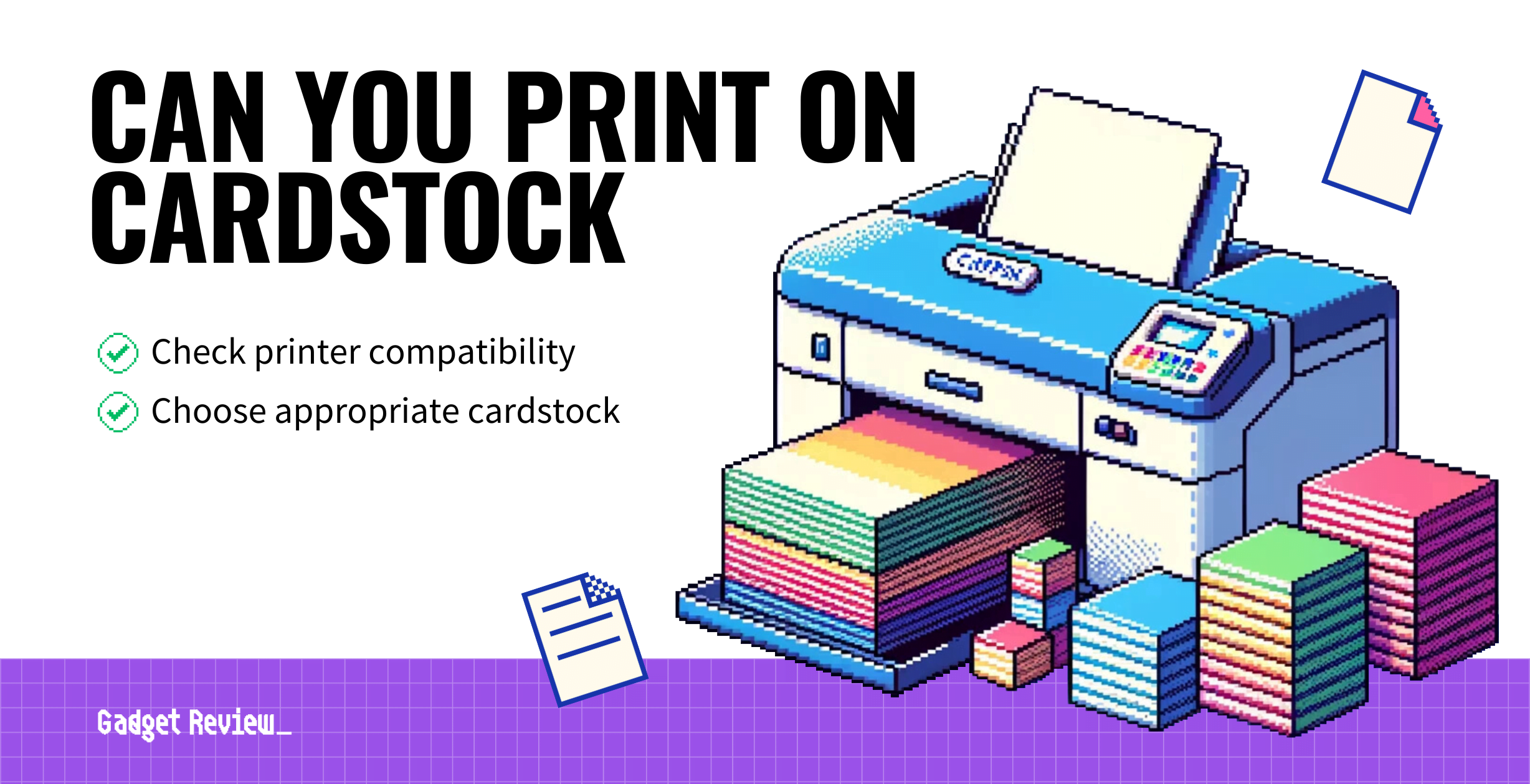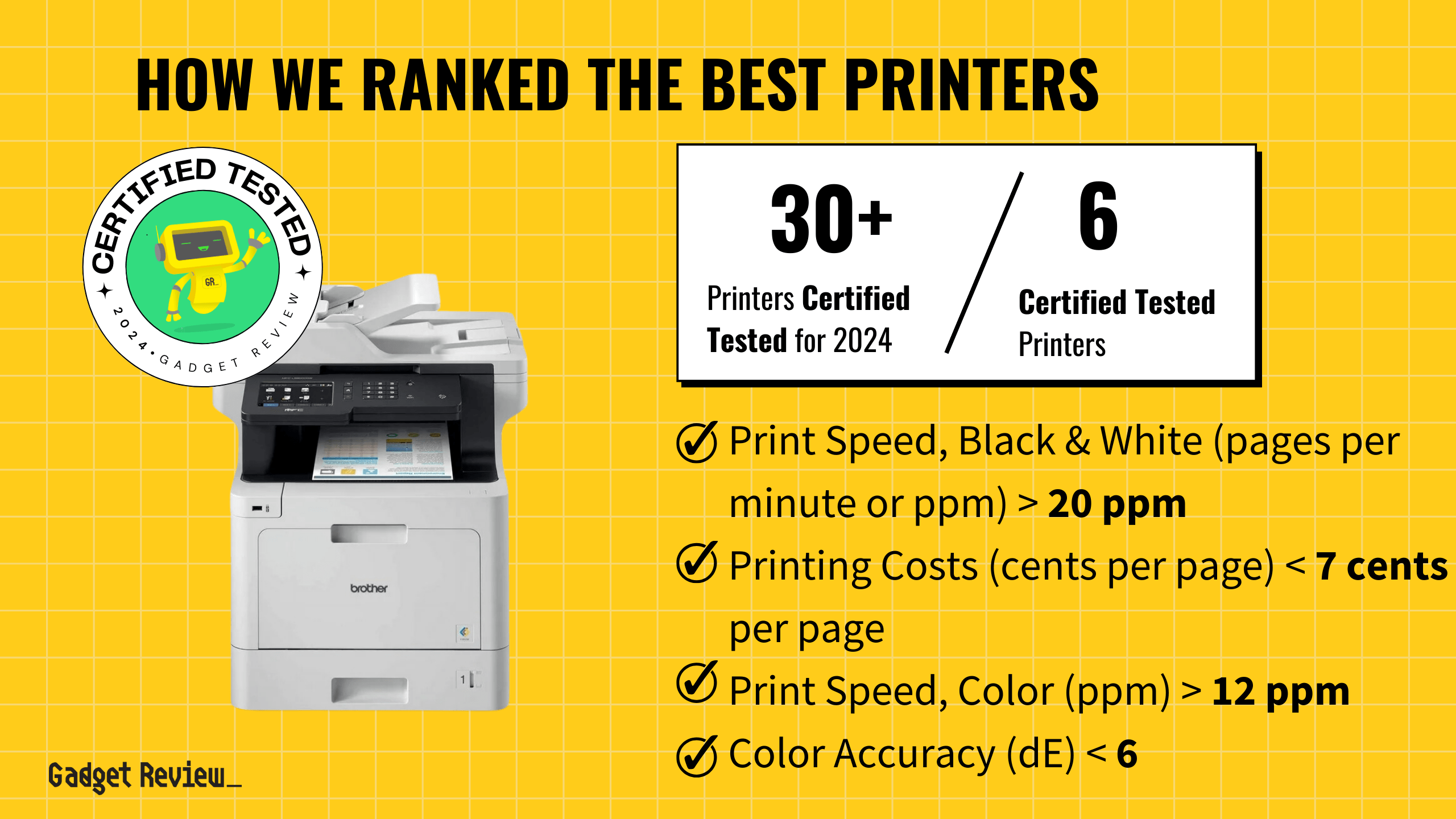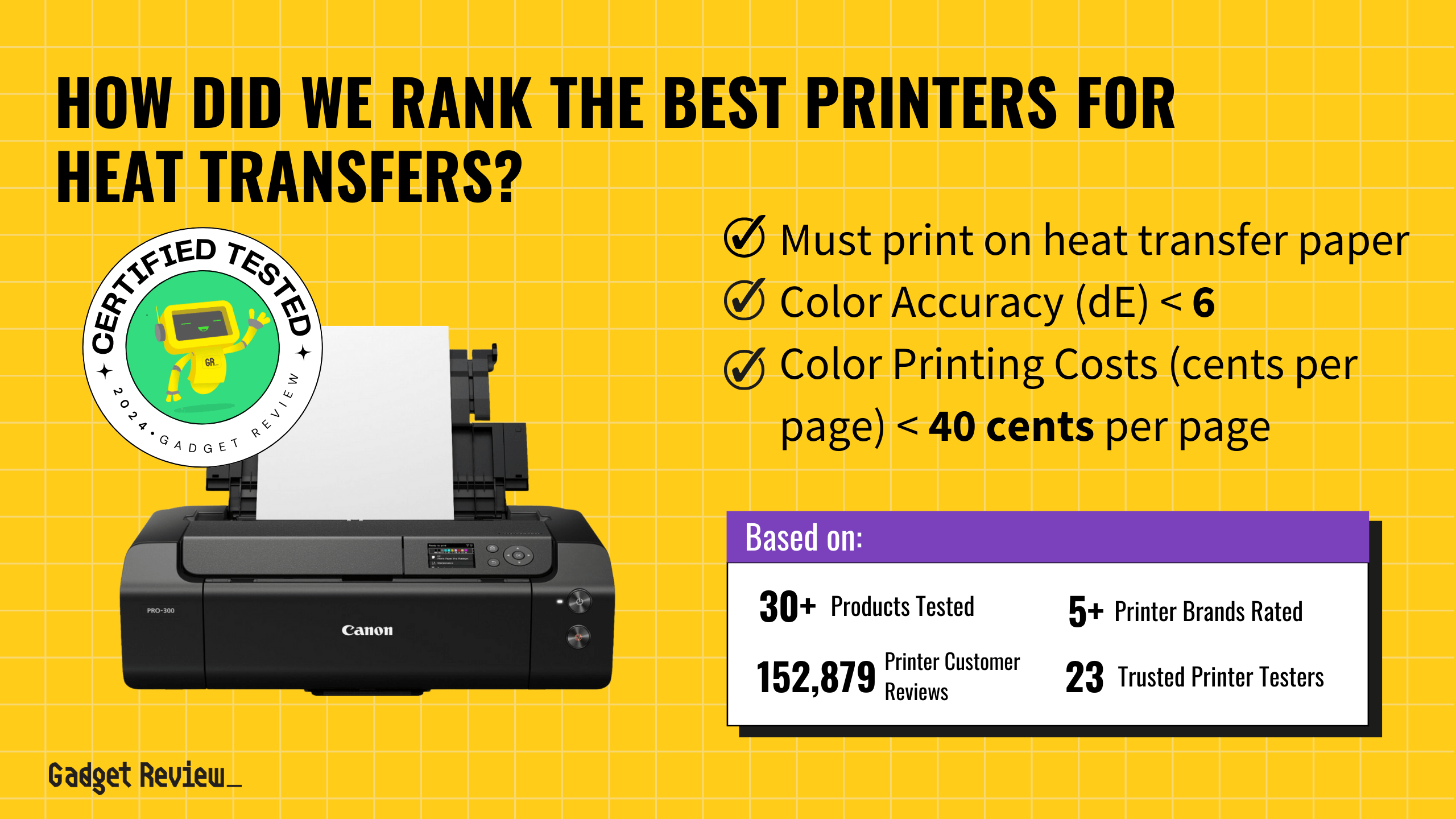
TL;DR
Best For Small Business
$ 1,049.49 at Amazon
Best For Cheap Ink
$ 0.00 at Amazon
Best For Envelopes
$ 450.00 at Amazon
Best For Laser
$ 524.99 at Amazon
Best For Chromebook
$ 264.97 at Amazon
Our top pick, the Brother MFC-L8905CDW Printer, excels as a wireless, budget-friendly powerhouse for small businesses, offering efficiency and versatility at an affordable price.
When selecting a printer for small business use, factors like fast print speeds, high page yields, and dependable connectivity options are essential to keep operations running smoothly. Pain points like slow printing, frequent toner changes, and connectivity issues can hinder productivity, making a reliable printer a valuable asset. We analyzed over 31 printers, narrowing it down to the top five based on 154,159 reviews and our stringent filtering process, which removed 67% of unreliable expert opinions.
Top Printer for Small Business For 2025
Prices accurate at the time of publishing

Best Overall

Runner Up

Best Value

Best Budget

Best Mid-Range

Premium Pick
Brother MFC-L8905CDW
Best For Small Business
Ideal for small businesses, the Brother MFC-L8905CDW combines efficiency, affordability, and versatility, making it a top choice for reliable and cost-effective printing.

True Score
91922Experts
853kCustomers
Cosmic Wonder
 $1,049.49
$1,049.49Read More
Snapshot
Reasons to Buy
- Good print quality (text)
- Fast printing speeds
- Excellent monochrome scan quality
- Economic running costs
Reasons to Avoid
- Low-quality image prints
- Grainy color scans
Specifications

Automatic Document Feeder Yes 
Automatic Two-Sided Printing Yes 
Copier Resolution (B&W) 1200 x 600 dpi 
Copier Resolution (Color) – 
Depth 20.7" 
Duplex Scan Function – 
Energy Star Certified n/a 
Height 21.6" 
Integrated Fax Yes 
Max Number of Copies – 
Max Paper Width – 
Mobile Printing – 
Number of Ink Cartridges Required – 
Paper Feeder – 
Print Speed (B&W) 33 ppm 
Print Speed (Color) 33 ppm 
Printer Resolution (B&W) 2400 x 600 dpi 
Printer Resolution (Color) 2400 x 600 dpi 
Printer Type Color Laser 
Scanner Resolution Up to 1200 x 2400 
Scanner Type Flatbed 
Tray Capacity 250 
Width 19.5" 
Wireless Yes All Specs
Test Results
B&W Print Speed (ppm) 23 Color Print Speed (ppm) 18 B&W Printing Costs (¢ per page) 3 Color Printing Costs (¢ per page) 18 Color Accuracy (dE) 9 All Retailers
- $1,049.49
Availability
In StockFree Shipping
No
Our Verdict
If you’re looking for a great all-around small business printer, the Brother MFC-L8905CDW is an exceptional option for those searching for a reliable and efficient printing solution. While this model is in the upper mid-range and the price is on the higher side, it is somewhat balanced by a notably low printing cost per page of 2.8 cents, ensuring long-term affordability for businesses with substantial printing needs. With a resolution of 2400 x 600 dpi and a commendable print speed of 23.15 pages per minute for black and white and 18 ppm for color documents, this printer is designed to handle the demanding workload of a small business environment efficiently.
A standout feature of the Brother MFC-L8905CDW is its comprehensive connectivity options, including wired and wireless capabilities, enhancing its versatility in various business settings. Furthermore, its support for mobile printing and automatic duplex and document feeder adds layers of convenience and efficiency, essential for fast-paced business operations. Although it may not boast the highest color accuracy with a dE of 9.02, it remains a robust choice for standard business document printing, where precision in color reproduction is not the primary concern.
The Brother MFC-L8905CDW excels in key areas, making it a versatile choice for small businesses and various settings needing reliable and cost-effective printing solutions. Its Energy Star certification highlights energy efficiency, an essential feature for cost-conscious and environmentally aware users. This printer’s strength in speed and cost-efficiency, particularly in monochrome printing, alongside its ability to handle diverse printing tasks, makes it a valuable asset beyond the conventional office environment.
Read Less

Best Overall

Runner Up

Best Value

Best Budget

Best Mid-Range

Premium Pick
Epson Ecotank ET-5850
Best For Cheap Ink
For small businesses, the Epson Ecotank ET-5850 offers unmatched efficiency and quality, with low costs and versatility justifying its initial investment.

True Score
90903Experts
88923Customers
Cosmic Wonder

Read More
Snapshot
Reasons to Buy
- High-quality, reliable printing
- Great scanning features
- Low running costs
- Blazing print speeds
Reasons to Avoid
- Mediocre color accuracy
Specifications

Automatic Document Feeder Yes 
Automatic Two-Sided Printing Yes 
Copier Resolution (B&W) – 
Copier Resolution (Color) – 
Depth 32.4" 
Duplex Scan Function Yes 
Energy Star Certified Yes 
Height 13.8" 
Integrated Fax Yes 
Max Number of Copies 999 
Max Paper Width 8.5" 
Mobile Printing Yes 
Number of Ink Cartridges Required 4 
Paper Feeder Cassette tray 
Print Speed (B&W) 25 ppm 
Print Speed (Color) – 
Printer Resolution (B&W) – 
Printer Resolution (Color) – 
Printer Type – 
Scanner Resolution – 
Scanner Type – 
Tray Capacity – 
Width – 
Wireless Yes All Specs
Test Results
B&W Print Speed (ppm) 23 Color Print Speed (ppm) 18 B&W Printing Costs (¢ per page) 1 Color Printing Costs (¢ per page) 2 Color Accuracy (dE) 7 All Retailers
Availability
In StockFree Shipping
Yes
Our Verdict
If you are searching for a premium all-in-one printer for your small business, the Epson Ecotank ET-5850 stands out as an excellent choice despite its higher upfront cost. This is primarily due to its impressively low and best-in-class printing cost per page, just 0.5 cents. This efficiency could lead to significant savings over time, making it an investment worth considering for those who prioritize long-term value.
The Epson Ecotank ET-5850 impresses with its quick print speeds of 23 ppm for black-and-white and 18.1 ppm for color, facilitating seamless business workflows without delays. Although its color accuracy, with a delta E of 7.02, is slightly behind the Canon imageCLASS MF753CDW’s 6.68 dE, it still delivers professional and precise printouts vital for businesses needing high-quality documents for presentations or promotional materials.
This printer excels in speed and versatility, offering high-resolution printing at 4800 x 2400 dpi for consistently crisp outputs. It boasts features like duplex printing, an automatic document feeder, and wireless connectivity, optimizing it for the demands of a busy business setting. The Epson Ecotank ET-5850 caters to a range of needs, from high-volume document printing to occasional photo printing, making it a versatile choice thanks to its superior print quality.
While the Epson Ecotank ET-5850 may have a higher initial cost, its low operating costs, exceptional speed, and print quality make it a valuable asset for small businesses. Its versatility also opens up possibilities for use in scenarios beyond the office, such as high-quality photo printing or handling large document loads, making it a comprehensive solution for various printing needs.
Read Less

Best Overall

Runner Up

Best Value

Best Budget

Best Mid-Range

Premium Pick
Canon imageCLASS MF455DW
Best For Envelopes
The Canon imageCLASS MF455DW is ideal for small businesses and excels with its impressive print speed, practical connectivity, and cost-effective operation.

True Score
89902Experts
871kCustomers
Absolutely Fresh
 SAVE $26$476.00$450.00
SAVE $26$476.00$450.00Read More
Snapshot
Reasons to Buy
- Print Quality
- Business-grade scanner
- High page yield
- Fast printing speeds
Reasons to Avoid
- Lacks color printing
Specifications

Automatic Document Feeder Yes 
Automatic Two-Sided Printing Yes 
Copier Resolution (B&W) – 
Copier Resolution (Color) – 
Depth 18.3" 
Duplex Scan Function Yes 
Energy Star Certified Yes 
Height 15.4" 
Integrated Fax Yes 
Max Number of Copies 999 
Max Paper Width 8.5" 
Mobile Printing Yes 
Number of Ink Cartridges Required 1 
Paper Feeder – 
Print Speed (B&W) 40 ppm 
Print Speed (Color) – 
Printer Resolution (B&W) Up to 600 x 600 
Printer Resolution (Color) – 
Printer Type All In One, Fax 
Scanner Resolution Up to 600 x 600 
Scanner Type Flatbed, Sheetfed 
Tray Capacity 250 
Width 17.8" 
Wireless Yes All Specs
Test Results
B&W Print Speed (ppm) 25 Color Print Speed (ppm) 0 B&W Printing Costs (¢ per page) 4 Color Printing Costs (¢ per page) 7 Color Accuracy (dE) 0 All Retailers
- $450.00$476Save $26
Availability
In StockFree Shipping
No
Our Verdict
If you need a reliable all-in-one monochrome printer, the Canon imageCLASS MF455DW stands out for its excellent print speed of 24.95 pages per minute, which ensures efficiency in handling high-volume tasks. It’s designed to cater to the dynamic needs of small businesses, offering a blend of speed and functionality that enhances workplace productivity.
The Canon imageCLASS MF455DW, designed for practicality, offers wired and wireless setup options for seamless integration in any business environment. Its efficiency is further enhanced by an automatic document feeder, ideal for handling multi-page documents in bustling environments. This monochrome all-in-one printer delivers swift printing and maintains crisp document clarity with its 600 x 600 DPI resolution. With a competitive printing cost of 3.6 cents per page, closely rivaling the Brother HL-L2325DW’s 3.8 cents, it stands out as a cost-effective solution for businesses that maintain high-quality output without overspending.
While the Canon imageCLASS MF455DW excels in speed and efficiency for document-centric tasks, its monochrome output might not suit all business needs. For instance, enterprises requiring color printing for marketing materials or presentations might find this model limiting. However, its robust performance in standard office printing tasks makes it a versatile asset, potentially suitable for other use cases like home offices or educational settings where high-quality monochrome printing is a priority.
The Canon imageCLASS MF455DW offers a harmonious blend of speed, efficiency, and practicality, making it a valuable addition to small business operations. However, its adaptability extends beyond the office, serving well in various environments that demand reliable monochrome printing.
Read Less

DON’T SEE WHAT YOU’RE LOOKING FOR?
Crafters should look for the best Cricut printers and excellent cardstock printers to handle intricate designs and heavy paper. The best printer for students offers affordability and reliable performance for school projects and assignments.
Mac users need the top printer for Mac to ensure seamless compatibility and functionality. A great large-format printer is essential for larger projects. Finally, cost-conscious users should consider a printer with cheap ink to save on long-term printing expenses.
If the printers in this guide don’t quite meet your small business needs, consider looking into the best label printer for specialized labeling tasks. Additionally, understanding the best type of printer for various office requirements can help you make a better choice. If you’re weighing ink options, comparing EcoTank vs. cartridges might reveal the most economical solution. For different printing methods, learn about the pros and cons of inkjet vs. dye-sublimation to find what works best for your business.

Best Overall

Runner Up

Best Value

Best Budget

Best Mid-Range

Premium Pick
Canon imageCLASS MF753CDW
Best For Laser
The Canon MF753CDW is ideal for small businesses, excelling in speed, accuracy, and essential features, blending quality with efficiency for diverse printing needs.

True Score
88882Experts
852kCustomers
Absolutely Fresh
 SAVE $178$702.99$524.99
SAVE $178$702.99$524.99Read More
Snapshot
Reasons to Buy
- Exceptional print quality
- Business-quality scanner
- Running cost
- Fast printing
Reasons to Avoid
- Expensive
Specifications

Automatic Document Feeder Yes 
Automatic Two-Sided Printing Yes 
Copier Resolution (B&W) – 
Copier Resolution (Color) – 
Depth 18.2" 
Duplex Scan Function Yes 
Energy Star Certified Yes 
Height 17" 
Integrated Fax Yes 
Max Number of Copies – 
Max Paper Width – 
Mobile Printing Yes 
Number of Ink Cartridges Required 4 
Paper Feeder Multipurpose tray 
Print Speed (B&W) 35 ppm 
Print Speed (Color) 35 ppm 
Printer Resolution (B&W) 1200 x 1200 
Printer Resolution (Color) 1200 x 1200 dpi 
Printer Type Copier, Fax, Printer, Scanner 
Scanner Resolution Up to 600 x 600 
Scanner Type Flatbed 
Tray Capacity 250 
Width 16.8" 
Wireless Yes All Specs
Test Results
B&W Print Speed (ppm) 23 Color Print Speed (ppm) 36 B&W Printing Costs (¢ per page) 5 Color Printing Costs (¢ per page) 24 Color Accuracy (dE) 7 All Retailers
- $524.99$703Save $178
Availability
In StockFree Shipping
No
Our Verdict
Those looking for a mid-range, all-in-one printer that delivers both quality and speed will want to look at the Canon imageCLASS MF753CDW, an impressive option. This model is designed to meet the rigorous demands of small businesses, with standout features such as its impressive color print speed of 36 pages per minute and commendable color accuracy (dE) of 6.68. Furthermore, its black-and-white print speed matches its color capabilities, ensuring efficient document handling for all your business needs. Its ability to quickly produce vibrant and precise color documents makes it a reliable asset for businesses that frequently print marketing materials, presentations, or reports.
The MF753CDW shines with its speed and accuracy. It boasts key small business features like duplex printing, an automatic document feeder, and versatile wired and wireless connectivity. While its performance is top-notch, it offers a reasonable cost per page at 4.9 cents, although quite a bit above the Epson Ecotank ET-5850’s 0.5 cents. This keeps operational costs in check. Its focus on seamless connectivity and efficiency makes it ideal for dynamic business settings, blending high functionality and quality in a compact package.
Beyond small business use, the Canon imageCLASS MF753CDW is useful for various other applications. Its robust printing capabilities and high color print speed mean it could also serve well in environments with high document turnover, such as educational settings or larger offices. Including features like mobile printing further broadens its appeal, accommodating the diverse needs of modern workplaces and even home offices where versatility is valued. This printer is not just a tool for small businesses but a multifaceted device capable of adapting to various printing needs across different use cases.
Read Less
Category Snapshot
Printers
- Total Brands/Products Tested
5 Brands, 31 Products
- Top 2 Brands
Epson, Canon
- Price Range (Budget-Premium)
$30-$1,000
- Average True Score
80.95
- Important Test Criteria
Mono & Color Print Speed (in/s, cm/s)
Color Accuracy (dE)
- Most Trusted Testers

- Top Printer Experts
- Typical Warranty
1 year
- Covered by Insurance
Yes – AKKO

Best Overall

Runner Up

Best Value

Best Budget

Best Mid-Range

Premium Pick
Brother HL-L2325DW
Best For Chromebook
For small businesses seeking a speedy, efficient monochrome printer without extra features, the Brother HL-L2325DW stands out for its simplicity and high-quality output at a budget-friendly price.

True Score
79772Experts
872kCustomers
Mixed Reviews
 $264.97
$264.97Read More
Snapshot
Reasons to Buy
- Great printing quality
- Low running costs
- Fast printing
Reasons to Avoid
- Limited functions
- Doesn’t print in color
Specifications

Automatic Document Feeder – 
Automatic Two-Sided Printing Yes 
Copier Resolution (B&W) – 
Copier Resolution (Color) – 
Depth 14.2" 
Duplex Scan Function Yes 
Energy Star Certified Yes 
Height 7.2" 
Integrated Fax – 
Max Number of Copies – 
Max Paper Width – 
Mobile Printing Yes 
Number of Ink Cartridges Required – 
Paper Feeder Cassette tray, Manual Feed 
Print Speed (B&W) 26 ppm 
Print Speed (Color) na 
Printer Resolution (B&W) 2400 x 600 dpi 
Printer Resolution (Color) – 
Printer Type Printer 
Scanner Resolution na 
Scanner Type na 
Tray Capacity 250 
Width 14" 
Wireless Yes All Specs
Test Results
B&W Print Speed (ppm) 25 Color Print Speed (ppm) 0 B&W Printing Costs (¢ per page) 4 Color Printing Costs (¢ per page) 0 Color Accuracy (dE) 0 All Retailers
- $264.97
Availability
In StockFree Shipping
No
Our Verdict
If you’re in the market for a budget-oriented monochrome printer that doesn’t compromise on speed, the Brother HL-L2325DW is excellent. As best-in-class print speed, it delivers an impressive 25.3 pages per minute, making it an ideal choice for small businesses prioritizing efficiency and productivity. The focus on monochrome printing ensures that it excels in delivering crisp, clear text documents, an essential feature for professional settings.
Unlike the versatile Canon imageCLASS MF455DW, the Brother HL-L2325DW adopts a focused approach. It is exclusively designed for printing without extras like scanning, faxing, or copying. Its simple connectivity, supporting both wired and wireless setups, fits smoothly into various small business environments. Equipped with duplex printing, it enhances ease of use and eco-friendliness by cutting down on paper use. Despite lacking color capabilities, its sharp 2400 x 600 dpi resolution guarantees crisp and clear document output.
When considering the broader spectrum of use cases, the Brother HL-L2325DW is a versatile performer. Its robust build and reliable performance extend its suitability beyond small business applications. This model stands out for home offices or even larger organizations that require a dependable printer for high-volume document printing. It’s efficiency and low printing costs of 3.8 cents per page ensure that it remains an economical choice without sacrificing quality.
While the Brother HL-L2325DW is primarily designed for small business needs, its attributes make it a compelling choice for various other scenarios. Whether it’s for home use, in educational settings, or as a secondary printer in larger enterprises, its combination of speed, efficiency, and reliability makes it a valuable asset in any context where monochrome printing is paramount.
Read Less
Which Criteria Matters for Testing Best Printer for Small Business?
By focusing on these criteria (2 required, 2 nice to have), anyone can quickly and easily compare these printers and how they’ll perform. This helps you make an informed decision and purchase a printer that will print with Wi-Fi.
| CRITERIA | RANGE | REQUIRED | DEFINITION |
|---|---|---|---|
| B&W Print Speed | > 20 ppm | Yes | How fast a printer can produce purely black and white pages while printing. |
| B&W Printing Costs | < 7 cents | Yes | How much a black and white page costs to print. |
| Color Print Speed | > 12 ppm | No (Nice to have) | How fast a printer can produce color pages and photos while printing. |
| Color Accuracy | < 6 dE | No (Nice to have) | How much the color printed by a printer deviates, on average, from the reference color. |
Our Trusted Data Sources
We looked at 80+ printers reviewers and found that 23 are trustworthy (60%+ Trust Rating). The three we have listed below are our most trusted for printers.
- Ryan Lim – Rtings, LinkedIn
- Lesley Robinson – TechGearLab, LinkedIn
- Ben Keough – Wirecutter, MuckRack, LinkedIn
Interested in a comprehensive analysis of our data sources? We’ve got you covered. Below, you’ll find a detailed list of every printer review website we’ve identified, organized by their respective Trust Ratings from highest to lowest. But we didn’t stop there. We’ve meticulously reviewed each publication and verified the data by checking whether the authors have bio links to MuckRack or LinkedIn. We’re committed to not only checking the facts but ensuring their veracity.
Printers Test Data & Results
1. Print Speed, Black & White (PPM)
The primary job of a printer is to print out pages, and black & white print speed tests are just measurements of how long it takes a printer to produce pages that are purely black and white. The better a printer is at printing in black and white, the more pages it’s able to produce in a minute.
Print speed is largely a matter of convenience, so while we have a minimum speed we suggest (generally around 20 pages per minute) there’s no real downside to a printer being slower if you’re using it at home – you’ll just end up having to wait longer to finish printing out a document. However, printers in professional settings need to be snappy because they’re going to be used constantly, and the faster a printer is able to produce documents, the better.
Print Speed, B & W
> 20 ppm
Acceptable range of performance
Definition: How fast a printer is able to produce black and white pages.
Units of Measurement: ppm (pages per minute)
Tools to Measure: A timer
Why It’s Important:
The point of a printer is to print – the less time you’re waiting for it to finish, the sooner you can get back to whatever you were doing.
Print Speed, Black & White (PPM; higher is better)
2. B&W Printing Costs (Cents per page)
Using your printer uses up ink, which means it costs money. Printing costs are usually measured as cost per print (or page) and are gauged by calculating how much each print costs by comparing the cost of an ink or toner cartridge to the total number of pages printed by the cartridge.
Print costs should ideally be as low as possible, with the greatest number of pages per cartridge being the obvious “goal” to aim for. Black ink, being the cheaper ink, means that black and white printing costs are usually lower on a per page basis. If you’re printing constantly, getting the cost as low as you can means you’ll be spending less on cartridges in the long run.
B&W Printing Costs
< 7 cents per page
Acceptable range of performance
Definition: How much its costs to print a single page in black and white.
Units of Measurement: cents per page
Tools to Measure: Calculator
Why It’s Important:
Lower costs per page means less money spent on ink in the long run.
B&W Printing Costs (in cents per page; lower is better)
3. Print Speed, Color (PPM)
Print Speed, Color
> 12 ppm
Acceptable range of performance
Definition: How fast a printer is able to produce color pages and photos.
Units of Measurement: ppm (pages per minute)
Tools to Measure: A timer
Why It’s Important:
If you’re printing photos or color pages constantly, higher print speeds will reduce the time spent waiting.
Much like black and white print speeds, color printing speed is simply a measure of how long it takes a printer to print out color documents and photos. If you’re purely printing photos, you’ll see an ever further reduced speed (given the size of photographs and the detail they demand.)
Color print speed is less important (generally) than black and white speeds, simply because it’s usually done less. However, if you’re constantly printing photos at home or in the office, higher print speeds are good to keep you from waiting around for a print job to finish.
Print Speed, Color (PPM; higher is better)
4. Color Accuracy (dE)
Color Accuracy
< 6
Acceptable range of performance
Definition: How much deviation exists between the colors printed by the printer itself and the colors shown in the photograph you’re printing on your monitor or phone.
Units of Measurement: N/A
Tools to Measure: Color Control Sensor, Color Reference Document
Why It’s Important:
If you print photos constantly, or need accurate colors for logos, color accuracy matters a great deal.
Color accuracy with printers uses a mix of standardized references (like the Adobe ColorChecker) and a color control sensor to check the accuracy of the colors printed by a printer and then grades the accuracy on a 10-point+ scale. Unlike most scales, where 10 is good, color accuracy scores are reversed, with 0 and 1 being the most desirable score, as it indicates little to no deviation from the reference color.
Generally speaking, color accuracy should be at least a 5 or lower to be considered “good.” At 6 or higher, the colors are noticeably different, which is an issue if you’re printing photos and hoping for accurate colors.
Color Accuracy (lower is better)
Best Printer for Small Business: Mistakes To Avoid
- Underestimating Printing Needs: Assess your business’s printing requirements accurately. Consider factors such as print volume, document types (e.g., text, graphics, photos), color vs. black and white printing, and the need for specialized printing tasks like envelopes, labels, or barcodes. For businesses that require printing on materials other than paper, such as fabrics or ceramics, the best sublimation printer is essential. Similarly, if your business includes creating custom apparel or merchandise, selecting a great printer for heat transfers will ensure high-quality results on a variety of materials.
- Ignoring Total Cost of Ownership: Don’t focus solely on the upfront cost of the printer. Consider the total cost of ownership, including ongoing expenses such as ink or toner cartridges, paper, maintenance, and repairs over the printer’s lifespan. For long-term savings, a top-rated laser printer could be more economical due to its lower per-page printing costs and durability. Additionally, investing in the best duplex printer will cut down on paper usage and further reduce operating expenses.
- Neglecting Printing Speed and Efficiency: Time is money in business. Choose a printer with fast printing speeds and efficient operation to minimize downtime and maximize productivity. Look for features like automatic duplex printing to save time and reduce paper waste.
- Disregarding Connectivity Options: Ensure the printer offers versatile connectivity options to accommodate your business’s needs. Look for Wi-Fi, Ethernet, and USB connectivity, as well as support for mobile printing technologies like AirPrint or Google Cloud Print for printing from smartphones and tablets.
small business printer TIPS
Maintaining your small business printer is crucial for long-term use. Learn how to dispose of a printer responsibly when upgrading your equipment. If you’re experiencing connectivity problems, our guide on repairing wireless printing on an all-in-one printer can help. For those needing to print larger documents, find out how to print legal size paper and poster size on a home printer. Maximizing cartridge efficiency is key, so understanding how many pages a toner cartridge can print and how many pages an ink cartridge can print will save you money.
Scanning documents efficiently is also important; here’s how to scan a photo from a printer to a computer. Knowing where to refill printer cartridges can reduce costs. Enhance your printer’s functionality by understanding what ADF in a printer is and how to make your printer wireless. If you encounter color issues, here’s why your printer is not printing true colors and how to fix it.
The Best Printer for Small Business Tests Compared
Product |
True Score
|
B&W Print Speed
|
Color Print Speed
|
B&W Printing Cost (per page)
|
Color Printing Cost (per page)
|
Color Accuracy
| |
|---|---|---|---|---|---|---|---|
| 91 |
|
|
|
|
| $769.99 |
| 90 |
|
|
|
|
| $849.99 |
| 89 |
|
|
|
|
| $94.99 $370 $275 |
| 88 |
|
|
|
|
| $524.99 $703 $178 |
| 79 |
|
|
|
|
| $264.97 |
























